How to Prepare General Knowledge for CLAT? | CLAT Mock Test Series 2026 PDF Download
General Knowledge is an essential part of the CLAT exam, carrying a total weightage of 25%, which is the highest apart from Legal Aptitude. The General Knowledge section of CLAT consists of 28-32 questions from Static GK and Current Affairs.

How to prepare for Current Affairs & GK section of CLAT Exam
The importance of this section lies in the fact that it helps save valuable time, allowing candidates to complete it quickly during the exam. In a test like CLAT, where effective time management is the key to success, even a short span of time can significantly influence one’s career trajectory.
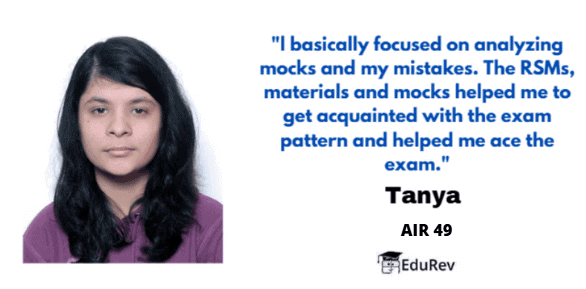
- But then this part requires maximum effort during the preparation. The GK section of CLAT also helps to boost the overall score as all the questions are factual and direct.
- Current Affairs will consist of all the things going around in mainstream media over the entire year. On the other hand, when it comes to Static GK, the CLAT exam can have questions from any sphere of life.
- You definitely cannot skip this section as it will prove to be quite scoring and time-saving if the preparation is done really smartly.
Here are stepwise strategies compiled by EduRev Experts on the guidance of various CLAT toppers, which will help you to clear this section of CLAT in an excellent manner.
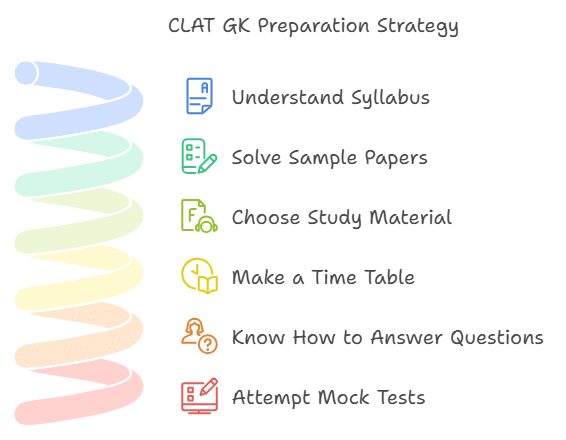
Step 1: Understand Syllabus & Exam Pattern for CLAT Current Affairs & GK Section
Before diving into the preparation, make sure to analyze the syllabus of the GK section.
- The Current Affairs including General Knowledge section of the CLAT exam will contain a total of 28-32 questions.
- The section will carry multiple passages of about 450 words followed by a series of multiple-choice questions (MCQs).
- Each question will be of one mark; for an incorrect attempt, 0.25 marks will be deducted.
- The questions asked under this section come from current affairs, international news and forums, economy, sports, technology, politics, and government initiatives.
- Important highlights for the Current Affairs section include:
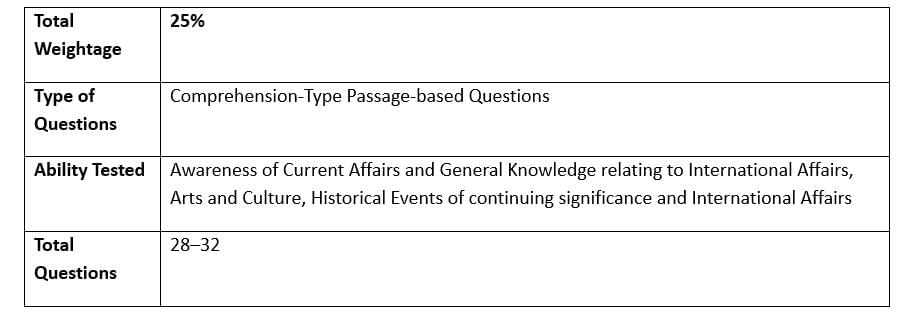
CLAT Current Affairs Including General Knowledge Syllabus
In this section, you will be provided passages of up to 450 words each. The passages will be derived from news, journalistic sources and other non-fiction writing. The questions may include an examination of legal information or knowledge discussed in or related to the passage, but would not require any additional knowledge of the law beyond the passage.
Each passage will be followed by a series of questions that will require you to demonstrate your awareness of various aspects of current affairs and general knowledge, including:
- Contemporary events of significance from India and the world;
- Arts and culture;
- International affairs; and
- Historical events of continuing significance.
Step 2: Solve Sample Papers & Previous Year Question Papers
After getting an insight into the syllabus of general knowledge section of CLAT, it is necessary to analyze and understand the type of questions asked in this section.
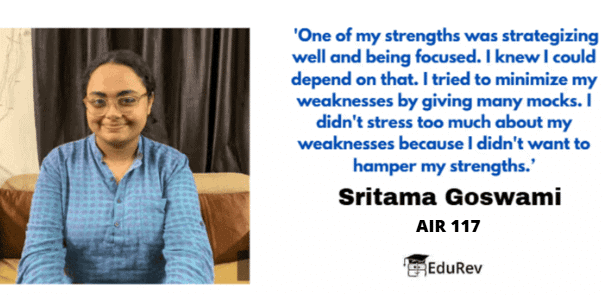
- Check PYQs: Make sure to check the previous year CLAT question papers to understand what types of questions are asked in this section. When you prepare with CLAT previous year's question papers, you get a list of important topics. This way, you'll know the areas covered and you can prepare according to the pattern.
CLAT Past Year Papers - Analyze Sample Papers: Solve all the sample papers, model test papers to get a complete idea of the recent pattern of the exam. Analyze the sample papers to understand the expectation of the exam.
- Mock Tests: Try appearing for mock tests on the GK section to understand the topics better and how well you know each part.
- Analyze Frequently Asked Questions: Once you get an idea about the pattern, start solving both previous year CLAT question papers and mock test papers that are available both online and offline. Study and analyze the topics from where the questions are frequently asked.
- Get acquainted with the pattern: Getting acquainted with the pattern will help you answer the question precisely and score more.
- Cover the following topics of Static GK: Static GK comes but related to current affairs. You can cover the following topics from PYQs, Mock Tests and Books and can analyze further from which topics questions are expected in CLAT.
Indian History | World History |
India Polity & Constitution | Indian Economy |
Geography | Physics Chemistry Biology |
Miscellaneous Portion | Computer |
Step 3: Choose the Study Material Wisely & Improve your Reading Skills

One of the most crucial factors which will affect your CLAT score immensely is the study material that you will choose. Choose the study material that is suitable for your understanding and adheres to the current exam pattern precisely.
- Reading is Everything - Stay Informed and Prepared: To be well-informed about current events, develop a habit of reading newspapers like "The Hindu" regularly. Keep notes of important news bits and review them weekly. Focus on specific topics like science, technology, legal affairs, sports, people, places, and inventions to enhance your knowledge.
- Know exactly what is happening in the world: CLAT GK is a very cut and dry section to get the marks; Either you know the answer or you don’t know. If you know exactly what is happening in the world, you can easily gain marks in the GK section.
- Editorial Section: It is advisable to go through the editorial section of the newspaper as it helps build your vocabulary and also develop analytical skills, which is extremely important for the CLAT exam.
Monthly Current Affairs Compilation: Refer to EduRev’s Monthly Current Affairs Compilation, which provides concise and exam-focused coverage of all important events.
Books: Apart from reading the newspapers, you can refer to these books recommended :
- Concise General Knowledge Manual: Pearson
- General Knowledge: Manohar Pandey
- Lucent's General KnowledgeWatch and Learn: Watching National and International news regularly is another factor that will contribute to strengthening your Current Affairs Section. This will help you know about the current issues in detail. Also, make systematic notes of the news which will be of great help later.
Step 4: Make a Time Table & Identify Your Strengths
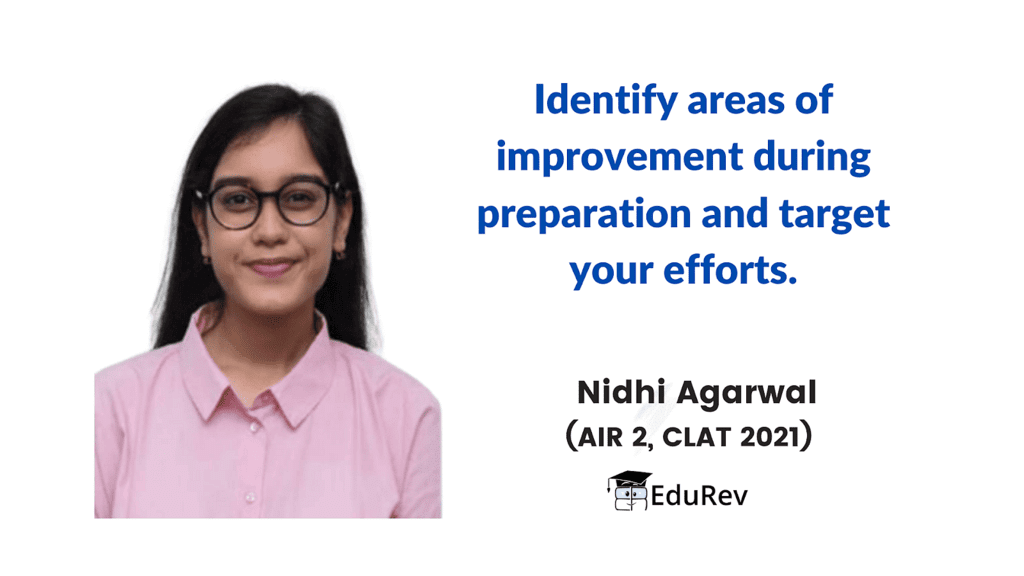
Fix a Daily Routine: Dedicate a fixed time slot for GK—preferably mornings for newspapers and evenings for revision/quizzes.
Read Selectively: Focus on important national and international news from The Hindu or The Indian Express; skip irrelevant local updates.
Use EduRev Resources: After newspapers, rely on EduRev’s Monthly Current Affairs Compilations, Daily Tests, and Quizzes for structured coverage.
Revise from Your Notes: Maintain a personal revision source and revise it regularly.
Play to Your Strengths: Start with subjects/topics you are comfortable with, then gradually cover weaker areas to build confidence and balance preparation.
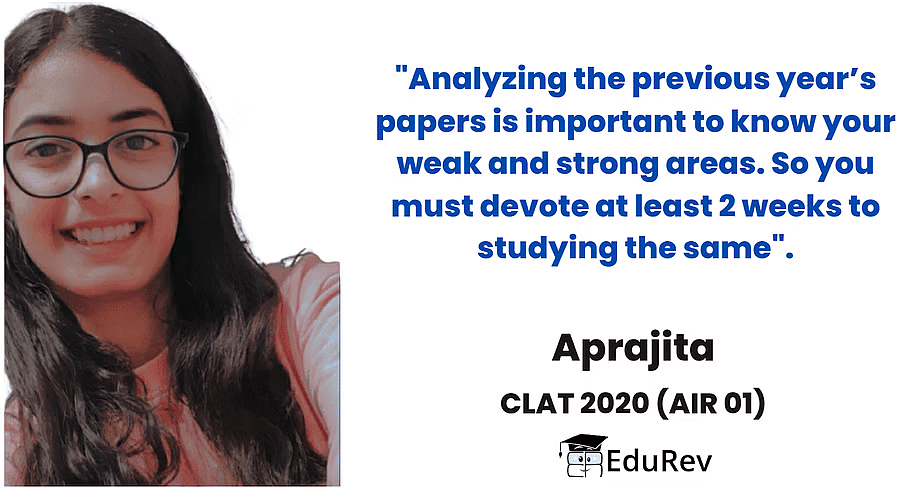
Step 5: Know How to Answer CLAT GK Questions?
The questions in the GK section will be based on current events and affairs across the globe. So, focus on events of significance.
The more you solve questions, the more you get equipped with the skill of eliminating options you realize are set as traps or as confusing but tempting ones.
- While attempting the questions, you must carefully read the information in the passages and answer the questions accordingly.
- You need not worry about memorizing the passage but the ability to comprehend it and find out the focus points and important pieces of information.
- Try to avoid guesswork in the exam.
- Do not spend time on a single question if you are unaware of the answer.
Step 6: Attempt Mock Tests and Keep in Mind these Tips and Tricks
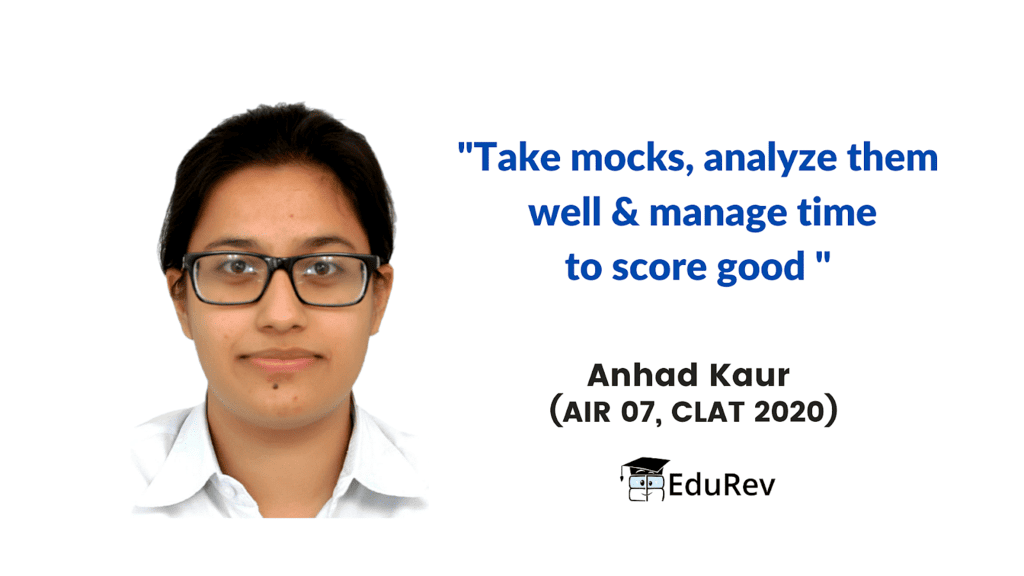
Give individual subject mock tests: Make sure to give individual subject mock tests to understand your strengths and weaknesses in the general knowledge subject. Also, try to give at least 10 full-length mock tests to get an idea of the actual exam.
Avoid guesswork: If you have prepared for the general knowledge section well, then out of the four options, you would be pretty sure about the answer. If you are not confident about any question, do not indulge in guesswork. If confident, mark the correct option. Else, the wisest choice is to leave the question that you are doubtful about.
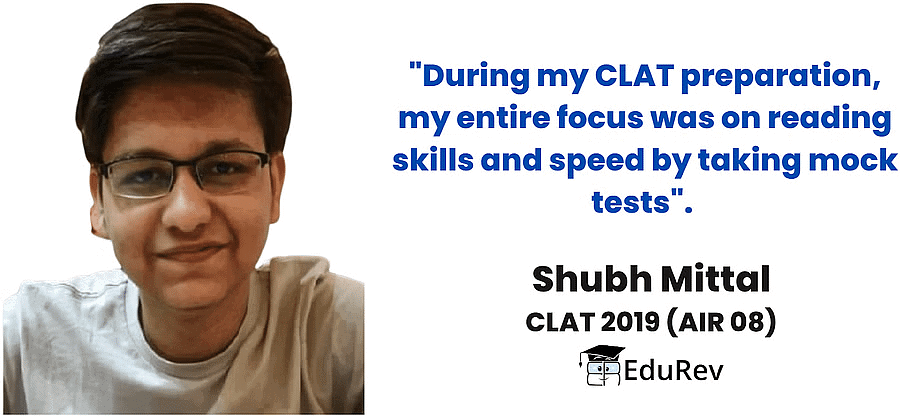
Revision: Current Affairs and GK is such a vast area of knowledge that even if you manage to read everything but revise nothing, there is a good chance that you will end up forgetting everything. Therefore, time-to-time revision of what you read is must in this section.
Mugging up will not help: You need to fall in love with the affairs of the world, or atleast make an effort to do so. Prepare notes well and revise them frequently. If possible, try to study in small groups and share notes.
Realistic Environment: CLAT mock tests will also give you a realistic environment to test your knowledge.
This will also help you prepare several new topics/ questions, which in turn will boost your
confidence.
Important FAQs related to Current Affairs & GK Section
Q.1. Current Affairs of how many months should be prepared for CLAT exam?
You should prepare Current Affairs of last one year for CLAT exam and should revise them periodically.
Q.2. Is one-month preparation enough for CLAT Current Affairs section?
Current Affairs and GK is an extremely vast subject. Therefore, it is one section, which should not be left for the last. To prepare well for this section, it is important that you dedicate at least two to three hours of your everyday time for minimum six months.
Q.3. What type of Current Affairs questions are asked in CLAT exam?
In CLAT exam, Current Affairs related to national and international events of last one year are asked. In the section, candidates will be given reading passages of about 450 words. Candidates will have to read those passages and answer the subsequent questions.
Q.4. Which newspaper is best for CLAT preparation?
Some of the newspapers that you can refer to for CLAT preparation include:
- The Hindu
- The Statesman
- The Telegraph
|
1 videos|37 docs|71 tests
|

















